![]() 07404 824 300
24/7: Enquire Here
07404 824 300
24/7: Enquire Here
24/7 Callout Service: ![]() 07404 824 300 Enquire Here
07404 824 300 Enquire Here
![]() 07404 824 300
24/7: Enquire Here
07404 824 300
24/7: Enquire Here
24/7 Callout Service: ![]() 07404 824 300 Enquire Here
07404 824 300 Enquire Here
Explore our user-friendly website for a comprehensive resource on various pests. If you have difficulty finding information on a specific pest, don't hesitate to call us. We are more than willing to provide additional details and expert advice. We specialise in handling a diverse range of pests, including Rabbits, Foxes and Glis Glis. Please feel free to contact us with your queries, we are here to help.
![]() Environmentally sensitive approach
Environmentally sensitive approach
![]() We provide a 24/7 call out service
We provide a 24/7 call out service
![]() We guarantee results
We guarantee results
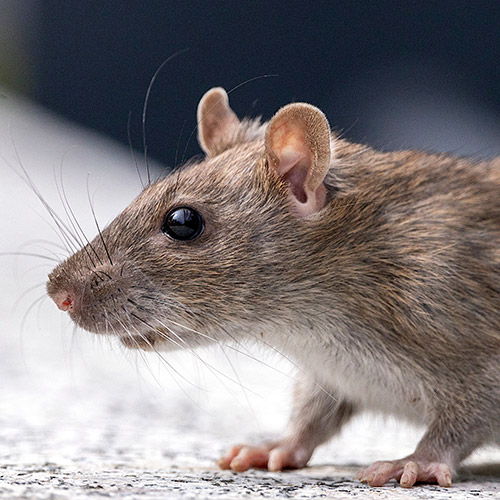
Rats are commonplace and frequently a problem. We spend a significant amount of our time controlling and removing rat infestations, particularly in the autumn and winter. An Integrated Pest Management programme is strongly recommended. Prevention is always preferable to cure and this is achieved by removing food sources, access to buildings and ground cover. Please call us to discuss a treatment programme and provide the best advice on rat prevention and control. We regularly provide consultancy services to commercial organisations and implement managed service agreements with monthly monitoring and reporting.
Resistance to rodenticides is widespread in south-east England. This means poisons that are available from retailers are unlikely to deal with any infestation and may make it worse by providing nothing more than a food source. In addition, there are strict environmental factors that should be considered to ensure non-targeted poisoning does not occur.
Wherever rats have gained access to a home or office block, trapping is preferable. The odour of a decaying poisoned rat trapped under a floor or stuck in a cavity is nauseating for occupants. Trapping rats requires behavioural knowledge and is not just a process of setting traps with bait. Rats are neophobic and wary of anything new. They are not easily trapped without the benefit of a good few years of knowledge.
Rats are also vectors of several pathogens and consequently, if you have observed or heard rats, we recommend making contact with us rather than attempting to deal with them yourself. Best advice is to remove all food sources, commonly this includes scattered bird food and bird tables, scraps on compost heaps, pet biscuits in outbuildings, stored ambient food products and broken bins. Read about our Rat Removal Services.
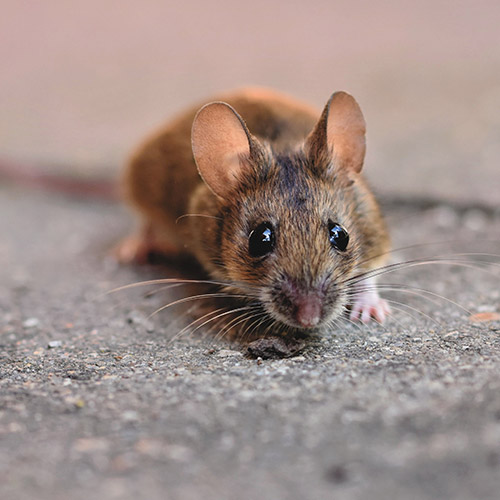
Mice, with their adaptability and inquisitive nature, can create significant issues when they infiltrate homes or businesses. Their nesting habits often lead them to seek shelter in roof spaces, under floors, wall cavities, sheds, basements, and storage areas, wherever they find a combination of food sources and a safe, warm environment.
Beyond the inconvenience, mice pose health risks. They are carriers of diseases like Salmonella and Listeria, transmitted to humans through urine, droppings, and bedding. Their sporadic eating habits and the need to mark territory near food sources increase the risk of food poisoning for those dealing with an infestation.
As mice scurry about, they carry dirt and bacteria, contaminating surfaces such as worktops, cupboards, and food stores. Mice's compulsive need to gnaw can wreak havoc on property, leading to serious damage to electric cables, water and gas pipes, packaging, and woodwork. Instances of electrical fires and floods have been attributed to mice activity.
Mice infestations require an Integrated Pest Management approach, similar to rat eradication. Preventing access is key to long-term effectiveness. The use of rodenticides may not always be the most efficient control method as mice may avoid bait, and if they don't, the unpleasant odour of decaying carcasses beneath floorboards is one to avoid.
If you notice (typically at night when you are trying to sleep) signs of mice presence, don't hesitate to contact us. We’re happy to provide advice and promptly schedule a time to attend and resolve any mouse-related issues you may be facing. Read about our Mice Removal Services.
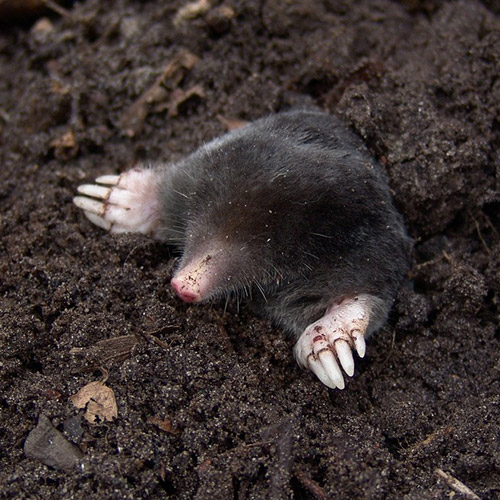
Moles cause significant damage to gardens and land through their extensive tunnelling activities. Developed tunnelling may render the ground unstable, kill lawns and make paddocks and pastures unsafe for livestock, notwithstanding the amount of spoil moles can create.
We use traditional trapping techniques to remove moles. We recommend you don’t invest in cheap scissor traps with weak springs that can be inhumane or tunnel traps that require tuning before they can be effectively used. We are 100% confident in our ability to catch moles and guarantee to capture at least one mole or more. We set a minimum of 5 traps per call out and guarantee to leave your gardens and pastures free of mole activity for 10 days. We have numerous long-standing clients with large estates where we oversee and manage a continuous mole management programme.
We are also licenced to undertake Phosphate gassing of moles in circumstances where mole traps cannot be used e.g. MOD property, golf courses and sporting greens. We work directly with ground teams and greenkeepers to complete full risk assessments and containment of areas before and following treatment.
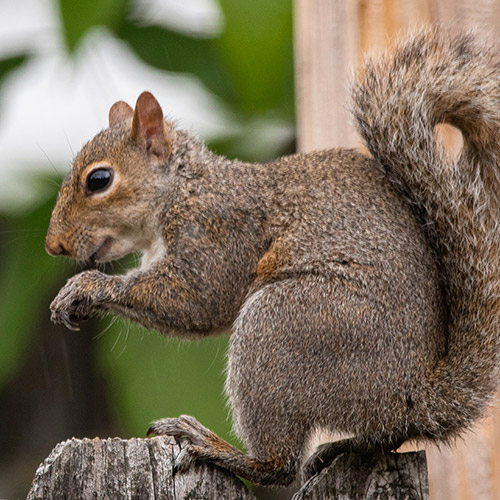
Grey squirrels pose a significant threat to the ecosystem, causing extensive harm to native trees such as beech, oak, and chestnut. Their bark-stripping behaviour weakens trees to such an extent that they die. In their pursuit of food, grey squirrels will raid birds' nests, preying on eggs having a considerable negative impact on fledgling survival rates. Orchards and gardens also fall victim to their destructive habits, with the squirrels destroying bulbs, corms, tree nuts, and recently sown seeds.
The destruction extends to residential spaces when squirrels gain access to roof spaces, causing extensive damage. This includes gnawing on woodwork and ceilings, stripping insulation from electrical wires, and tearing up fibreglass insulation. Additionally, their presence can contaminate cold water tanks and attic spaces with urine and droppings.
Ensuring responsible and effective management of squirrels, or any pest species, requires a professional assessment to determine if lethal control measures are necessary. As an initial step, implementing proofing techniques is recommended. If proofing proves unsuccessful, seeking our assistance is the recommended next course of action.
It's crucial to recognise that squirrels in the UK are considered invasive species, necessitating careful management. Control may employ various methods, including spring traps, live capture traps, drey poking, and other shooting techniques, to address squirrel-related issues. These measures are implemented with expertise and precision to achieve effective control while considering ethical and humane practices.
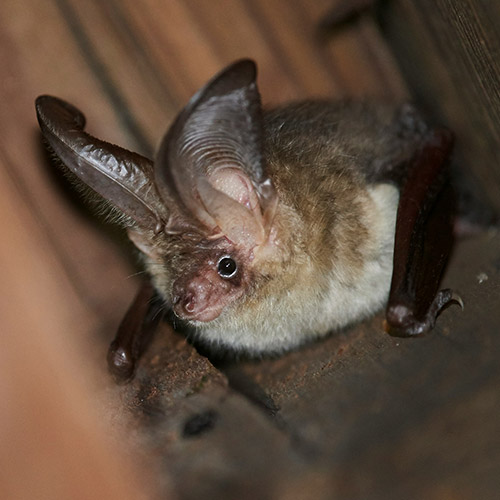
Bats are a protected species and should not be removed (or access prohibited) without consultation or permission. It is a prosecutable offence to destroy a bat roost or bats themselves. If you require a building survey to identify any presence of bats or a roost we can complete full surveys and provide written reports which may be required for planning applications and building works.

Specific bird species create direct conflict when they choose to roost in or around our homes or businesses. This can create several problems, ranging from excessive noise, damage to property and concerns about public health. View our dedicated bird control services page.